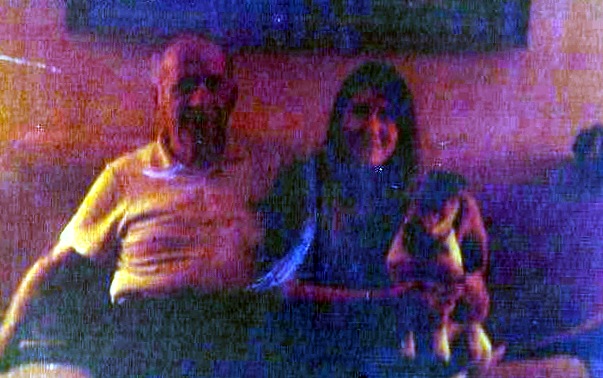
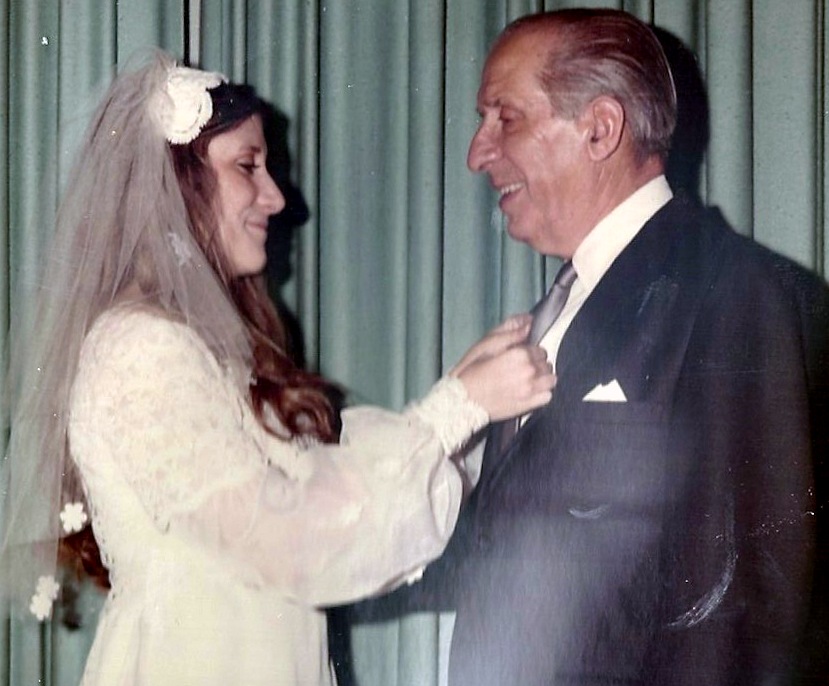
Move over, Kornmehl family. Today is my father’s day.
From Vienna to Belgium and America
If I thought I knew next-to-nothing about my mother’s past, I know even less about my father’s. I’m not sure, for example, whether my paternal grandfather died before the war or left his family — and, in either case, when those events occurred.* My mother didn’t know either. And only after my father died did I discover, by spotting a glass Jarolim Biergarten mug in my sister’s house, that my paternal grandfather had owned a beer hall.**
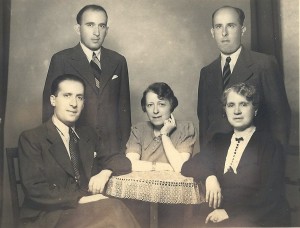
The story of my father’s war years is equally fuzzy. He and his brother Richard were able to get to Belgium, where they spent some time in a work camp. Somehow my father was able to come to America, while Richard was sent to someplace deadly. The other brother, my uncle Fritz, survived the war by joining the French Foreign Legion.
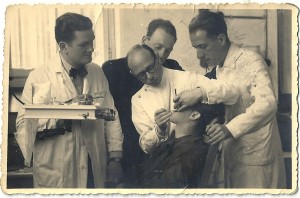
My mother told me that when my father got definite word after the war that his mother and sister had been killed, he had a nervous breakdown. I don’t doubt it. My father was a difficult man. He would punish me and my sister for whatever childish infractions we committed by refusing to speak to us — sometimes for six months at a time.
That drove me crazy, I won’t deny it. But I adored him. And I don’t think I ever had any doubt that he loved me too.
Our Brooklyn Outings
My father was a dental technician — did he learn the trade at the Belgian work camp, or did he already know it in Vienna? I have no idea — which meant crafting dentures and bridges for his many dentist clients. He worked long hours during the week and he often worked on Saturday too. But on many Sundays he would take me to Garfield’s Cafeteria on Flatbush Avenue for a piece of cake or pie. It was just the two of us; my mother and sister were not invited.
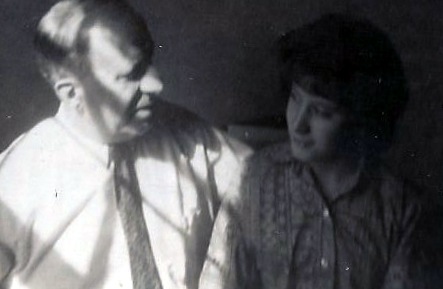
When we moved up the D train line to King’s Highway, where my father had his dental laboratory, we shifted Sunday cafeteria venues to Dubrow’s.
I look more like my father than I do my mother. I’ve been told I get my sense of humor from him, too; he had a dry wit. He was never very demonstrative, but on my wedding day morning, he saw I was upset. He asked me if I was sure I wanted to go through with it, and told me that I didn’t have to if I didn’t want to. Then he hugged me hard and told me that he loved me. I don’t think anyone, even my mother, knew about that.
He died suddenly when I was 23, of a heart attack. He was 70, and had stopped working at his dental laboratory about two weeks earlier. He and my mother were planning to move to Atlanta, where my sister and her family lived. I guess he didn’t like change.

Of course it could have been a coincidence. I didn’t know this until after the fact, but my father had been diagnosed with an enlarged heart and given pills to take. That he didn’t take them is not a huge shock. My family hated doctors.
I never called my father “dad” or “father”; it was always “daddy,” which sounds a bit childish but I’m not going to rewrite history.
It was a very long time ago, but I still miss him. I promise to work on your family tree next, Daddy. If I ever finish with the Kornmehls.
*I discovered that my grandfather Ignatz Jarolim died in 1918 of pneumonia, which probably meant Spanish flu.
**I never found any evidence of a Jarolim Biergarten, aside from the glass mug.

Thank you, Edie, for the reminder that this is Father’s Day even for those fathers who are no longer with us physically.
And those photos of you are wonderful!
You’re welcome. I thought you and other longtime friends might get a kick out of those old pictures. It’s not like I haul out my wedding album too often…
That was sweet. Your father looked like a very kind man and I can see the physical resemblance. It’s so hard to picture you with long hair!
Thanks, Karyn. I think I only went through a brief period of long hair, probably from age 16 or so until around 25. Earlier and later I tended to keep my hair short. What you can’t see in the wedding picture is that my hair had strands of green in it! It’s a long story. All I can say is thank heavens for head pieces.
Hey there…just back from vacationing in Barcelona and Paris….so pleased to read this for you Dad…I remember him quite well….a gentle soul….
I do not remember your wedding dress….but I do remember that kugel!
I also remember I was in Israel when your Dad died and didn’t know until I came back…..
Our fathers seemed to have similar personalities (difficult, silent treatment). …. But
I don’t think they were friends…probably just cordial….my Dad died at 64 and I miss
him every single day ….and always will.
Happy Father’s Day Paul and Syd.
Love, sharon
Hello, you world traveler you!
Well, my father was about as gentle as yours — which is to say not really. And since they were both workaholics and (in my father’s case) didn’t socialize with anyone, they would not have been friends. But yes, I imagine they were cordial.
As one of the few people reading this who actually attended my wedding I’m sure you remember a few more details (though the kugel was definitely memorable): Hillary’s tie skirt, David’s odd suit, Al’s father pretending to drag him down the aisle.
I didn’t realize your father was only 64 when he died — how young it seems now…
I imagine the third “daddy’s girl” of our childhood trio will weigh in here too.
Hugsx
Oh yes Hillary’s tie skirt! How could I forget?
Hope all is well with you…let’s catch up soon…
S.
Thanks for reminding all of us that our fathers had a large impact on our lives and that they played a role in our search for family. They are missed, but never forgotten.
Your loss was so (comparatively) recent, Jill, today must be doubly tough for you. I hope this day brings you happy memories.
It never ceases to amaze me how much children love and need their parents, even when those parents are not the easiest people. I’m not surprised you know so little of your father’s history; my father refused to talk about his childhood, even though he was born here in Canada and never experienced the dislocation and horrors of the Holocaust. He had his own unhappiness; his father died when he was 9, and the family went through the Depression in desperate poverty. I think parents of that generation turned their backs on the pain and suffering of the 30s and 40s, and tried to go forward as though it never happened… and of course we know that’s not really possible to do. (Wouldn’t Freud agree with that?) Understanding is the first step to forgiveness, and clearly you have achieved both in your loving memory of your father.
Freud would definitely agree with that, Lori. It’s healing for children to understand that (most) parents do the best they can, and that’s really all that we can expect. Once I realized what my father had gone through, I thought he did pretty darn well as a parent.
Brandy!
🙂
My daddy was always daddy too. I used to wonder when he was alive, how I could survive his death. It’s been 17 years. I survived but I am in tears as I write this.
There’s a special bond between fathers and daughters that’s irreplaceable — and I suspect the word we both remember our fathers by brings back those primal childhood feelings, no matter how much time has passed. It’s difficult, isn’t it?